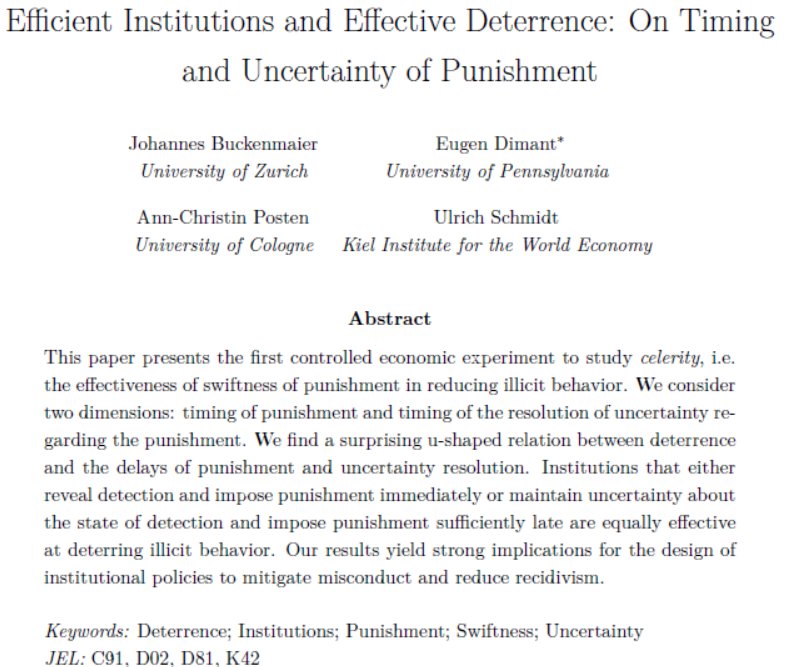(w/ colleagues @econ_uzh @UniCologne @kielinstitute)
RQ: How to design institutions effective at deterring deviant behavior & recidivism?
A: Proper use of swiftness & uncertainty
Paper: bit.ly/2SJ9D63
Thread 1/n

Understanding how to design proper institutions is important from both the social and economic perspective.
We examine a third and understudied element (see HOPE program): celerity (swiftness of punishment)
In particular, we study how the timing of sanctions (be it conviction or sentencing) & the timing of the resolution of uncertainty for sanctions affects deterrence & recidivism.
/end
I don’t know that many crime economics folks on here - sharing with them is appreciated




